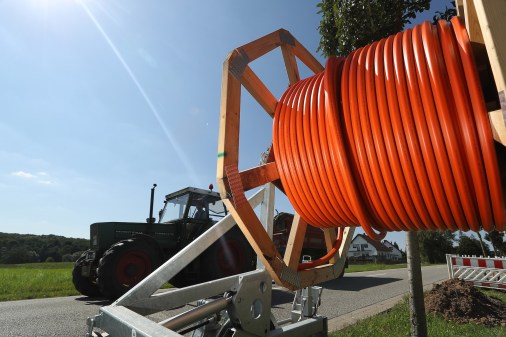Oregon weighs cellphone tax to expand rural broadband

A bill up for consideration in the Oregon legislature would raise taxes on wireless customers to fund rural broadband deployment — but wireless industry stakeholders are wondering where their benefit is.
The legislation, introduced at the request of House Interim Committee on Economic Development and Trade, would allocate roughly $10 million annually for rural broadband development, to be distributed to rural wireless carriers through grants and loans. The money would be pooled in a broadband fund raised through increased taxes on cellphone subscribers, specifically on intrastate phone calls.
The proposal would cost cellphone users between $4 and $12 a year, according to bill advocates. Opponents of the legislation, which includes the telecommunications industry, say the fee would target consumers who don’t necessarily benefit from the fund they’re paying into.
Scott Mackey, a managing partner at Leonine Public Affairs, which is representing CTIA, the wireless industry’s trade group, told StateScoop the proposed arrangement is unfair.
“It doesn’t seem like a very fair thing to do to make wireless consumers pay what is essentially a tax on their voice service so the money can be used to subsidize landline broadband deployment,” Mackey said. “If Oregon policymakers think it’s a priority, and a lot of people think it is, it ought to be funded out of the regular budget and not a new tax just narrowly targeted on wireless consumers.”
The expansion of rural broadband is a rising priority in Oregon. Gov. Kate Brown issued an executive order in December to create a state broadband office, primarily for coordinating a statewide strategy to expand internet into rural areas. Oregon House Bill 2184, which could go into effect as early as Jan. 1, 2020, would provide grants or loans to help rural telecom companies build out open broadband networks.
Democratic state Rep. Pam Marsh, who serves on the committee that introduced the bill, claims on her website that 400,000 Oregon residents lack internet access.
“We can’t all be part of the modern life and the modern world if we don’t have access to some of the needs,” she told Oregon Live.






